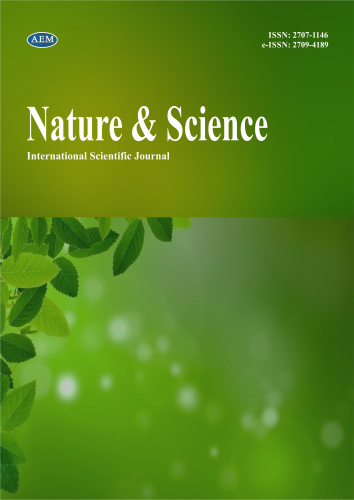DOI: https://doi.org/10.36719/2707-1146/55/64-72
Sevinj Allahverdiyeva
Baku State University
https://orcid.org/0009-0007-9308-9815
sevincallahverdiyeva77@gmail.com
Nigar Zakirova
Baku State University
https://orcid.org/0009-0002-9082-7038
nigarshahbazi@yahoo.com
Saib Gulahmadov
Baku State University
https://orcid.org/0000-0003-3804-0801
saibgulahmadov@bsu.edu.az
Nurlan Amrahov
Baku State University
https://orcid.org/0000-0002-6916-7672
nurlan00686@gmail.com
Ziyaddin Mammadov
Baku State University
https://orcid.org/0000-0001-8009-194X
ziya1313@gmail.com
Effect of the Sodium Nitroprusside Inducer on the Concentration of Nitric
Oxide and Photosynthetic Pigments Under Stress Conditions
Abstract
Drought and salinity are major global challenges affecting crop productivity, including in Azerbaijan, where grain production is a vital sector. Sodium nitroprusside (SNP), a nitric oxide donor, has shown promise in enhancing plant stress tolerance, but its effects depend on concentration and stress type. This study investigates the impact of SNP on nitric oxide (NO) levels and photosynthetic pigments in the local durum wheat variety Triticum durum Desf. Revan under salinity and drought stress.
Wheat seeds were germinated under controlled laboratory conditions and exposed to 0.1 mM and 0.2 mM SNP treatments. Salinity and drought stress were simulated using sodium chloride (NaCl) and polyethylene glycol (PEG-6000), respectively.
Results showed that 0.1 mM SNP significantly enhanced chlorophyll content and NO levels under salinity stress compared to 0.2 mM, indicating a concentration-dependent response.
However, under drought stress, neither concentration of SNP led to significant improvements in NO accumulation or pigment content.
These findings suggest that low-concentration SNP treatment may enhance salinity tolerance in wheat by modulating NO levels and maintaining photosynthetic activity, while its effect under drought conditions appears limited.
Keywords: wheat, sodium nitroprusside, abiotic stress, salinity, photosynthetic pigments

